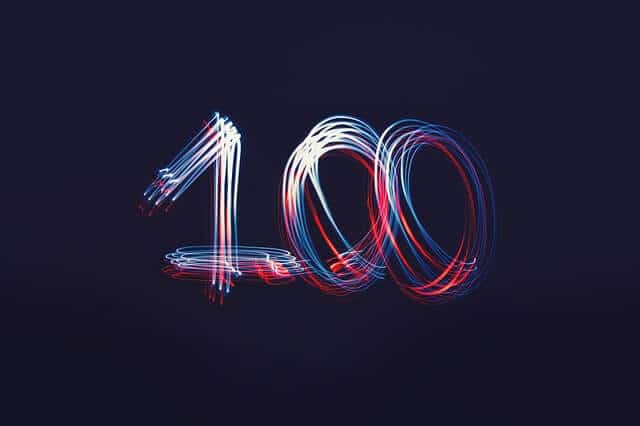100-Days Action Plan to Clear IAS Prelims

How should you prepare for UPSC prelims in 100 days? What are the books you should read and what are the books which you should not? How should you practice mock exams? How should you prioritize your time? To get answers to all these questions, follow our 100-Days Action Plan to Clear IAS Prelims.
Basic Requirements
Join ClearIAS Prelims Online MockTest Series
Enroll in ClearIAS Prelims Online Mock Test Series. This is the flagship service of ClearIAS at an affordable cost. This is a time-tested program which has helped thousands of aspirants clear prelims in the previous years. We strongly recommend all serious aspirants to join our mock test program, as our strategies are integrated with our mock exams.
Advantages: Pioneers in online coaching, trusted by toppers, 55 Online Mock Exams, 5000+ Questions, 1,00,000+ registered aspirants, performance analytics, all-India ranking, subject-wise proficiency etc.
Get the essential books which you can cover in the remaining days
As the time left is limited, you don’t need to purchase too many books, but the below-mentioned list can surely help.
NCERTs from Class 6-12 of all subjects. (Get English medium NCERTs here | Get Hindi medium NCERTs here)
Indian History – Modern India by Rajiv Ahir (Spectrum)
Indian Culture – by Nithin Singhania
Indian Economy – by Shankar Ganesh or Ramesh Singh
Environment – by Shankar IAS Academy or Oxford
Geography – NCERTs and Oxford Atlas
Science and Technology – NCERTs
Current Affairs – ClearIAS Current Affairs Compilations, Latest India Year Book, Latest Economic Survey
CSAT – Solve Previous 7-years questions as per official key
Note: Make sure you focus only on the core areas from which you get maximum questions. (For example, Executive/Legislature/Judiciary in case of Indian Polity, Maps in the case of Geography etc.)
ClearIAS Action Plan for Prelims: Day 1 – Day 30
Make a timetable, which suits your requirement. We suggest a plan which has 9-hours devoted to studies every day.
Rather than trying to finish a subject (which will never happen), try to split your time for all subjects – every day.
For example, if you have 9 hours a day for studies or revision – give 1 hour for History, 1 hour for Geography, 1 hour for Polity, 1 hour for Economics, 1 hour for Science and Technology, 1 hour for Environment, 1 hour for Current Affairs and last 2 hours for taking ClearIAS Mock Exams.
Make notes and mind maps, if you come across a difficult concept.
Revise whatever you studied for each subject the previous day, in the first 15 minutes of your next day.
Spend weekends, entirely for revision of textbooks and revision of mock exams.
By the end of the 30th day, you should have some good understanding of all the above-mentioned textbooks. We don’t mean you should cover every page line by line, but rather a good understanding of all the basic concepts.
If you take 1 mock exam each day, you can cover all 55 mock exams in 55 days! If you take 2 mock exams /day, you can cover 55 mock exams in 28 days! This means it would not take much time to learn 5000+ questions and 5000+ important concepts. This would make a big difference.
If you ask us, the highest priority item for any aspirant is to practice ClearIAS mock exams in a timed environment with negative marking.
Learn the art of elimination of wrong answers in UPSC Prelims. While doing mock exams, follow the 4-round elimination strategy we discussed in detail via email.
We don’t encourage learning MCQs from photocopies or pdfs, because this would not help to avoid mistakes you are likely to make in the exam hall.
Install ClearIAS app, it will help you use your time while travelling.
The key is not to prioritize what’s on your schedule but to schedule your priorities.
ClearIAS Action Plan for Prelims: Day 31 – Day 60
Okay, now you have only 70 days remaining.
Go through all the simple, free, and easy-to-learn online notes available in clearias.com. Also, check our downloads section and store for any newly released study materials.
Revise the practice questions we email you for free.
Revise the ClearIAS Current affairs monthly Capsule available in the ClearIAS store.
Don’t spend more than 1 hour on newspapers.
Don’t spend too much time on books not mentioned in the above list, as the returns on time you invest may not be high.
ClearIAS Action Plan for Prelims: Day 61 – Day 90
Buy the book ‘General Knowlege by Manohar Pandey‘ and revise it thoroughly. Though this book is titled General Knowledge, it contains all basic information from subjects like polity, geography, science, history etc. This helps in quick revision. Those who are from the non-Science background, take a look at the Science section of this book. It will surely help in a quick understanding of what is needed in exam perspective.
Track your improvement while solving mock exams.
Revise our NCERT based mock exams again. Whenever you need a reference, go back and read the corresponding portion of NCERT books.
Rather than mechanically doing mock exams, spend sufficient time to analyse the results, learning zone, and performance reports.
ClearIAS Action Plan for Prelims: Day 91 – Day 100
Attempt and revise previous year UPSC questions.
Revise the notes you already made for Prelims.
Revise all Clear Prelims Mock Exams.
Don’t go behind any new materials or mock questions, but focus only on the recommended items we discussed above.
Make sure you revise for at least 8 hours in the last 10 days and ensure that you get 7-8 hour sleep until IAS Prelims.
Have strong self-belief. Believe that you can clear IAS Prelims with whatever time left. All the best!

Comments
Post a Comment